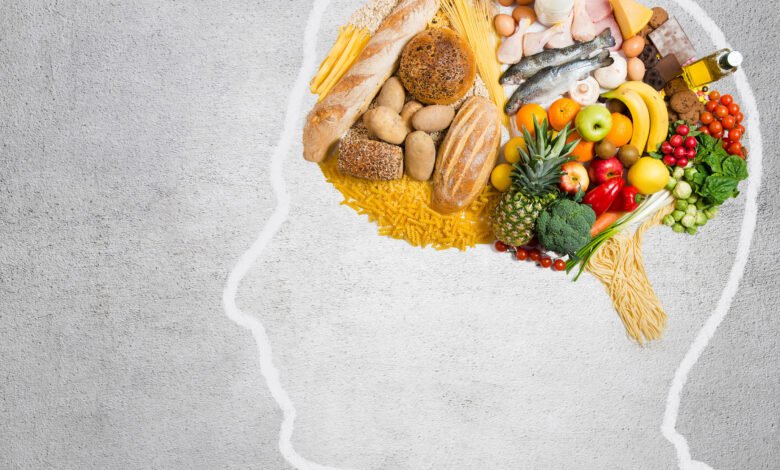The Emotional Advantages Of A Good Diet

Do you know The Emotional Advantages Of A Good Diet? Good eating is frequently associated with its physical advantages, but it can also have significant mental benefits. A balanced diet that is nutrient-rich has been linked to greater mental health, from more energy and better sleep to less anxiety and despair.
We will examine some of the good potentials of the emotional advantages of a healthy diet, which can be transformed like a butterfly emerging from its cocoon. Let’s take a closer look at how our food choices can impact our lives in a variety of ways because, as the phrase goes, “you are what you eat.”
According to recent studies, dietary modifications can have a major impact on mental health, both favourably and unfavourably. It has been discovered that diets heavy in processed foods are linked to a higher chance of developing depression, whereas diets high in nutrients are linked to lower depression levels and better levels of happiness.
In addition, research points to some elements in fresh fruits and vegetables as potential defences against mood disorders like anxiety and sadness.
Dietary modifications can be crucial in controlling mental health disorders and enhancing general emotional well-being, despite the fact that the relationship between food and mental health is complex.
This article will examine how a good diet can enhance overall emotions of pleasure and contentment by supplying the body and mind with vital nutrients. We’ll also examine which meals are most likely to help you fight against common mental health problems including stress, exhaustion, and poor moods.
Read More: Balanced Diet is Important Of a Healthy Lifestyle.
The Impact Of Nutrient-Rich Foods On Mental Health
Although many of us have heard the saying “Health is wealth,” we frequently forget how crucial a balanced diet is to preserving both our physical and mental health. A nutrient-rich diet can significantly improve our mental health since it makes us feel energised, more productive, and generally happier. The emotional advantages of a good diet will be discussed in this essay.
First off, nutrient-dense meals like fruits, vegetables, proteins, and grains give our systems the critical vitamins and minerals they need to perform at their best. These nutrients enable the synthesis of neurotransmitters that influence our moods; serotonin promotes feelings of well-being and relaxation, while dopamine enhances mental clarity.
Also, eating these meals frequently helps fight the body’s inflammation, which is connected to depression.
Moreover, getting enough fibre aids in healthier digestion, which also contributes to feelings of fulfilment. Moreover, fibre decreases the rate at which blood sugar is released, which helps lessen the jittery or anxious sensations brought on by a sugar rush.
Regular mealtimes can also aid in controlling blood sugar levels, which enhances feelings of serenity and calm.
It should go without saying that maintaining a healthy diet is essential to gaining all of these emotional advantages. Eating excessively or insufficiently can result in nutrient deficiencies, which can cause mood swings or other mental health problems; this emphasises the importance of mindful eating practices and sensible portion sizes.
So, while thinking about how to increase one’s well-being, a nutrient-rich diet has a significant impact on one’s emotional health.
Link Between Diet And Mood Disorders
Some people may find it surprising that nutrition might affect mental health, but the data is thorough. Studies exploring the relationship between nutrition and mental problems, for instance, are increasingly pointing to a connection. Many scientific studies have found proof of the link between certain food elements and psychological health.
Irony can be utilised to exemplify this idea. Although we may believe that all food is “simple food,” it seems that some foods have a more equal impact on our mental health than others. Although poor diets have been found to raise the risk of sadness and anxiety, nutrient-rich foods offer real emotional advantages.
The evidence suggests that some dietary elements, including iron, omega-3 fatty acids, B vitamins, and other micronutrients, are crucial for controlling mood and emotion.
Moreover, diets rich in fruits and vegetables are associated with outcomes that are favourable for mental health. Making wise eating decisions can therefore aid people in better managing their emotions and enhancing their general well-being.
Benefits Of Eating Healthy For Your Emotional Well-Being
Ironically, professionals have recently begun to understand the advantages of eating healthfully for emotional well-being. According to studies, what we eat affects not only our physical health but also our mental health and general well-being. In this sense, it is thought that a good diet helps to foster happy feelings and lessen anxiety.
There may be a wide range of psychological advantages to eating well. For instance, eating a diet high in omega-3 fatty acids is linked to better mood, a lower risk of depression, and less anxiety. A balanced diet, one that includes plenty of fruits, vegetables, whole grains, and lean meats, may also aid in enhancing concentration and lowering stress levels, according to some research.
There is evidence to support the idea that some dietary adjustments may improve happiness. Consuming complex carbs, such as brown rice or oatmeal, may help to balance blood sugar levels, and getting enough protein throughout the day will help you stay active and feel good all day.
Furthermore, by avoiding low blood sugar levels, which can cause irritation and weariness, eating regular meals and snacks can help enhance mood.
How Eating Healthy Can Improve Your Self-Esteem

It is impossible to emphasise the value of a good diet for emotional well-being. Think about Maria, who struggled with her weight and had a negative view of herself. She worked hard to adapt her diet and exercise regimen, and as a result, her view of life was drastically altered.
Her increased self-esteem and confidence as a result of her physical health improvement allowed her to approach life with more optimism. This is only one illustration of how a balanced diet can improve emotional well-being.
Emotional health can benefit from a balanced diet in both direct and indirect ways. Eating healthful foods increases physical energy levels and cognitive function, which improves mental clarity and focus.
Also, as people become more self-assured in their appearance and talents, improving physical health can help people feel better about themselves. Also, regular exercise releases endorphins, which improve mood and lessen stress.
These elements work together to produce an environment that promotes overall improved emotional wellness. Healthy eating gives people the means to feel good about themselves on an emotional and physical level, as well as the energy they need to be active, minimise stress, and have more faith in their body’ capacities.
Those who choose healthy diets benefit psychologically from the combination of all these factors.
Strategies For Eating Healthy And Managing Stress
Nutritionists and medical specialists alike agree that eating well has numerous emotional advantages. Only 12% of 2,000 persons in the United States who participated in a recent survey reported eating a balanced diet.
Also, it’s thought that more than 50% of people worldwide lack regular access to nutrient-dense meals. This emphasises how crucial it is to know how to handle stress and eat correctly in order to experience the corresponding emotional advantages.
This H2 focuses on techniques for stress management and good eating. One such tactic that can assist in controlling blood sugar levels and supplying energy for physical exercise is eating frequently smaller meals throughout the day.
Consuming an abundance of fruits, vegetables, nutritious grains, lean proteins, and legumes can both benefit mental and physical health. Also, since these foods have been associated with a higher risk of health issues including heart disease and depression, it’s vital to limit diets high in saturated fat and added sugars.
When attempting to lead a healthy lifestyle, having the capacity to handle stress is also crucial. Cortisol is the main hormone released during times of stress; taking daily breaks for relaxation exercises like yoga or meditation might assist lower levels of cortisol while enhancing focus and attention.
Another crucial component is getting adequate restful sleep; studies have shown that people who obtain 7-8 hours of sleep every night are less prone to become overwhelmed by challenging circumstances than people who do not.
Using meal kit delivery services is another option to think about for your convenience. For instance, check out this comparison of home chef vs. hello fresh to see what kinds of meals they offer, how much they cost, and which one best meets your dietary requirements.
By implementing these techniques, people can start to feel the beneficial emotional effects of eating a nutritious diet, such as higher self-esteem, sharper attention and concentration, reduced anxiety, and enhanced general well-being.
Read More: Tips on Help a Family Member Is Having Depression
The Role Of Exercise In Boosting Mood And Improving Emotional Health
It’s like letting go of a mental and emotional elixir when you exercise. It has a wide range of perks that are good for your physical and mental well-being. Exercise has a crucial role in maintaining a healthy life, from elevating mood to enhancing emotional wellness.
Exercise has been shown to improve mental health in numerous studies. It can lower tension, anxiety, and sadness while also boosting mood and self-esteem, according to studies.
Also, it can boost concentration levels by enhancing the capacity to maintain attention on tasks. Regular exercise can also help with better sleep duration and quality, which is crucial for overall health.
Physical activity offers various physiological advantages in addition to favourable psychological effects. It promotes the creation of serotonin, which contributes to feelings of peace and relaxation, as well as endorphins, which can provide sensations of happiness and euphoria.
Moreover, exercise raises resistance to disease and lowers the likelihood of developing conditions like obesity, diabetes, heart disease, etc. Together, these elements support one in preserving the best level of emotional stability and mental health.
Conclusion
Satire has been used for ages to present an absurd and funny perspective on a subject. Satire can be used to highlight the value of a good diet and all of its advantages when it comes to nutrition and emotional health.
For optimum mental health, eating nutrient-rich meals is crucial, since studies have shown that diets lacking in some nutrients can raise the risk of mood disorders. Eating well can also elevate mood, lower stress levels, and promote self-esteem. Exercise has also been shown to be a powerful tool for reducing stress and enhancing emotional health.
In conclusion, maintaining good mental health and emotional well-being depends on a balanced diet. In order to reap the full benefits of a healthy diet, it is crucial to work towards a balance in life that includes both regular exercise and good eating.







